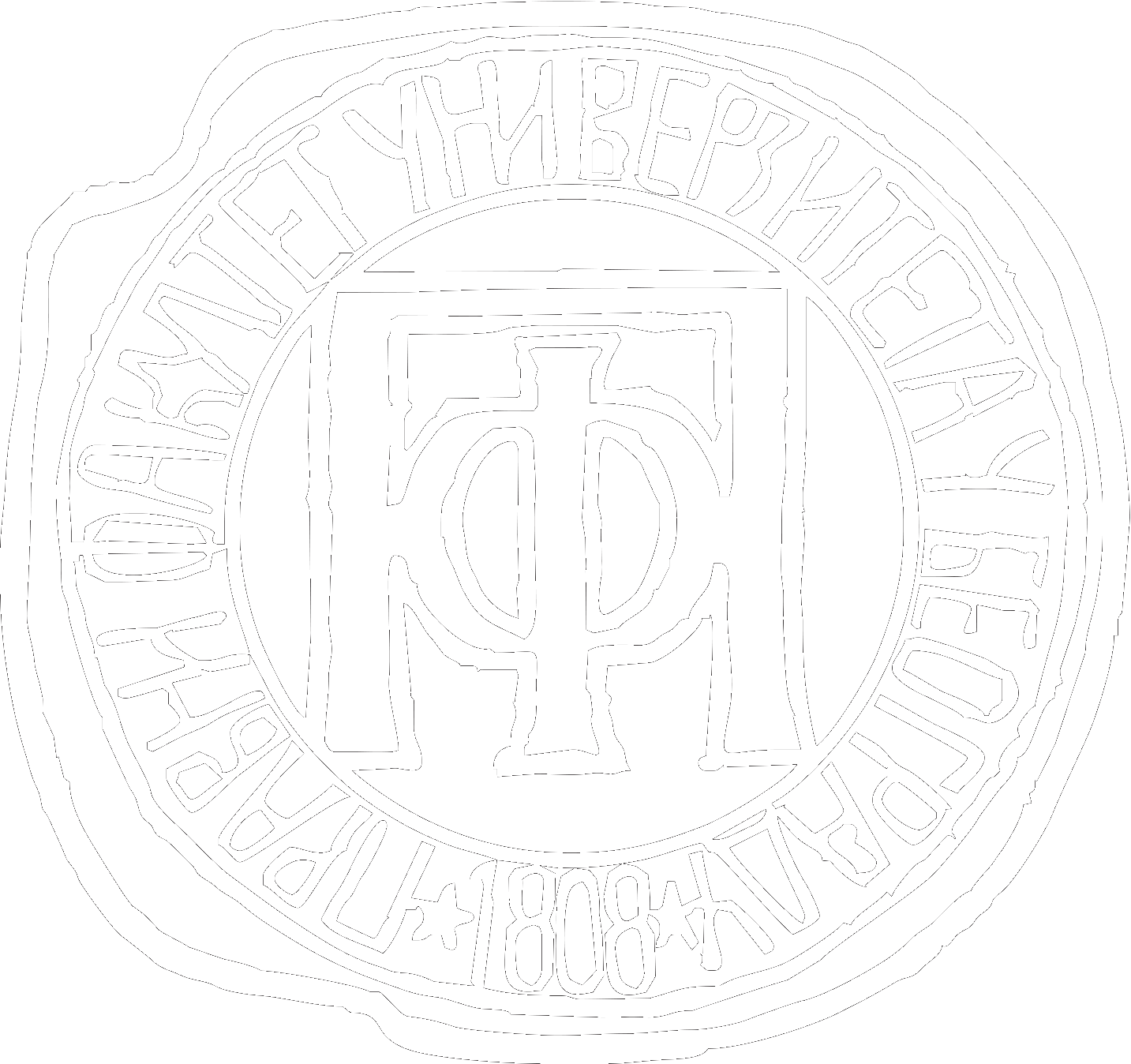Crime control contemporary global tendencies
Characteristics, perspectives
Keywords:
crime control; globalism; new penology; securityAbstract
Contemporary courses in the sphere of socio-economic and political relations, are characterized by global departure from social welfare model and decrease in the public spending with regard to the enforcement of penal sanctions. It emphasizes the notions of the risk and probability and shifts the focus from the causes of criminal behaviour towards the control of behaviour and from the control of crime towards crime management. It is concerned with cost minimization and risk management through incapacitation without an aspiration to rehabilitation and re-integration of offenders. On the level of national crime control policy, consequences of those global tendencies have borne significant impact on the national sentencing policy (which is seen to getting harsher with the constantly increasing number of prisoners). Therefore, it is of great importance to understand contemporary courses in the field of social reaction to the criminal behaviour and pay attention to the experiences of those countries who managed to avoid or significantly reduce the level of 'populist punitivness'.
Downloads
References
Armstrong, S. /2007/: "What Good Are Markets in Punishment?" Prison Service Journal, 72.
Becket, K., & B. Western. /2001/: "Governing Social Marginality: Welfare, Incarceration, and Transformation of State Policy." Punishment & Society, Vol. 3(1). https://doi.org/10.1177/14624740122228249
Begović, B. /2010/: "Ekonomska teorija generalne prevencije: osnovna pitanja." In Ignjatović, Đ., Stanje kriminaliteta u Srbiji i pravna sredstva reagovanja, IV deo, Beograd.
Bock, M. /2010/: "Über die Positive Spezialprävention in den Zeiten des Feindstrafrechts." In Ignjatović, Đ., Stanje kriminaliteta u Srbiji i pravna sredstva reagovanja, IV deo, Beograd.
Blumstein, A. /2011/: "Approaches to Reducing Both Imprisonment and Crime." Criminology & Public Policy, Vol. 10(1). https://doi.org/10.1111/j.1745-9133.2010.00694.x
Cauchie, J., & F. Chantraine. /2005/: "Use of Risk in the Government of Crime: New Prudentialism and New Penology." Champ pénal/Penal Field, Vol. II. https://doi.org/10.4000/champpenal.467
Darlauf, S. N., & D. S. Nagin. /2011/: "Imprisonment and Crime: Can Both Be Reduced?" Criminology & Public Policy, Vol. 10(1). https://doi.org/10.1111/j.1745-9133.2010.00681.x
Downes, D. /2001/: "The Macho Penal Economy: Mass Incarceration in the United States – A European Perspective." Punishment & Society, Vol. 3(1). https://doi.org/10.1177/14624740122228258
Farrell, J., K. Hayward, & Y. Young. /2008/: Cultural Criminology. London.
Feeley, M. M., & J. Simon. /1992/: "The New Penology: Notes on the Emerging Strategy of Corrections and Its Implications." Criminology, Vol. 30(4). https://doi.org/10.1111/j.1745-9125.1992.tb01112.x
Foucault, M. /1997/: Nadzirati i kažnjavati. Novi Sad.
Garland, D. /1996/: "The Limits of the Sovereign State: Strategies of Crime Control in Contemporary Society." British Journal of Criminology, Vol. 36. https://doi.org/10.1093/oxfordjournals.bjc.a014105
Garland, D. /1997/: "Governality and the Problem of Crime: Foucault, Criminology, Sociology." Theoretical Criminology, Vol. 1(2). https://doi.org/10.1177/1362480697001002002
Garland, D. /2000/: "Criminology, Social Theory and the Challenge of Our Times." British Journal of Criminology, Vol. 40. https://doi.org/10.1093/bjc/40.2.189
Garland, D. /2001/: The Culture of Control: Crime and Social Order in Contemporary Society. Oxford. https://doi.org/10.7208/chicago/9780226190174.001.0001
Garland, D. /2004/: "Beyond the Culture of Control." Critical Review of International Social and Political Philosophy, Vol. 7(2). https://doi.org/10.1080/1369823042000266576
Garland, D. /2005/: "The Meaning of Mass Imprisonment." Punishment & Society, Vol. 3(1). https://doi.org/10.4135/9781446221228.n1
Hallsworth, S. /2000/: "Rethinking the Punitive Turn: Economies of Excess and Criminology of the Other." Punishment & Society, Vol. 2(2). https://doi.org/10.1177/14624740022227926
Ignjatović, Đ. /2009/: "Pretpostavke izgradnje modela kontrole kriminaliteta u novom milenijumu – krosnacionalna perspektiva." In Kontrola kriminaliteta i evropski standardi: stanje u Srbiji, Beograd.
Loader, J. /2000/: "Fall of Platonic Guardians, Liberalism, Criminology, and Political Responses to Crime in England and Wales." British Journal of Criminology, Vol. 46. https://doi.org/10.1093/bjc/azi091
Mathiesen, T. /1994/: "General Prevention as Communication." In Duff, A., & Garland, D. (Eds.), A Reader on Punishment. Oxford.
Mitrović, M. /2007/: "Društveni sukobi i kriminalitet u Srbiji." In Ignjatović, Đ., Stanje kriminaliteta u Srbiji i pravna sredstva reagovanja, I deo, Beograd.
O'Malley, P. /1999/: "Volatile and Contradictory Punishment." Theoretical Criminology, Vol. 3(2). https://doi.org/10.1177/1362480699003002003
Pratt, J. /2008/: "Scandinavian Exceptionalism in an Era of Penal Excess, Part I: The Nature and Roots of Scandinavian Exceptionalism." British Journal of Criminology, Vol. 48. https://doi.org/10.1093/bjc/azm072
Robinson, G. /1999/: "Risk Management and Rehabilitation in the Probation Service: Collision and Collusion." The Howard Journal, Vol. 38(4). https://doi.org/10.1111/1468-2311.00145
Snacken, S. /2010/: "Resisting Punitiveness in Europe?" Theoretical Criminology, Vol. 14(3). https://doi.org/10.1177/1362480610370165
Stojanović, Z. /2010/: "Krivičnopravni ekspanzionizam i zakonodavstvo Srbije." In Ignjatović, Đ., Stanje kriminaliteta u Srbiji i pravna sredstva reagovanja, IV deo, Beograd.
Weisburd, D. /2001/: "Shifting Crime and Justice Resources from Prison to Police: Shifting Police from People to Places." Criminology & Public Policy, Vol. 10(1). https://doi.org/10.1111/j.1745-9133.2010.00690.x
Williams, K. S. /2008/: Textbook on Criminology. Oxford.
Zedner, L. /2002/: "Dangers of Dystopias in Penal Theory." Oxford Journal of Legal Studies, Vol. 22. https://doi.org/10.1093/ojls/22.2.341

Downloads
Published
How to Cite
Issue
Section
License
Copyright (c) 2011 Snežana Soković

This work is licensed under a Creative Commons Attribution 4.0 International License.
The authors retain copyright and grant the journal the right of first publication, allowing others to share the work with proper attribution to the authors and acknowledgment of its original publication in this journal.










